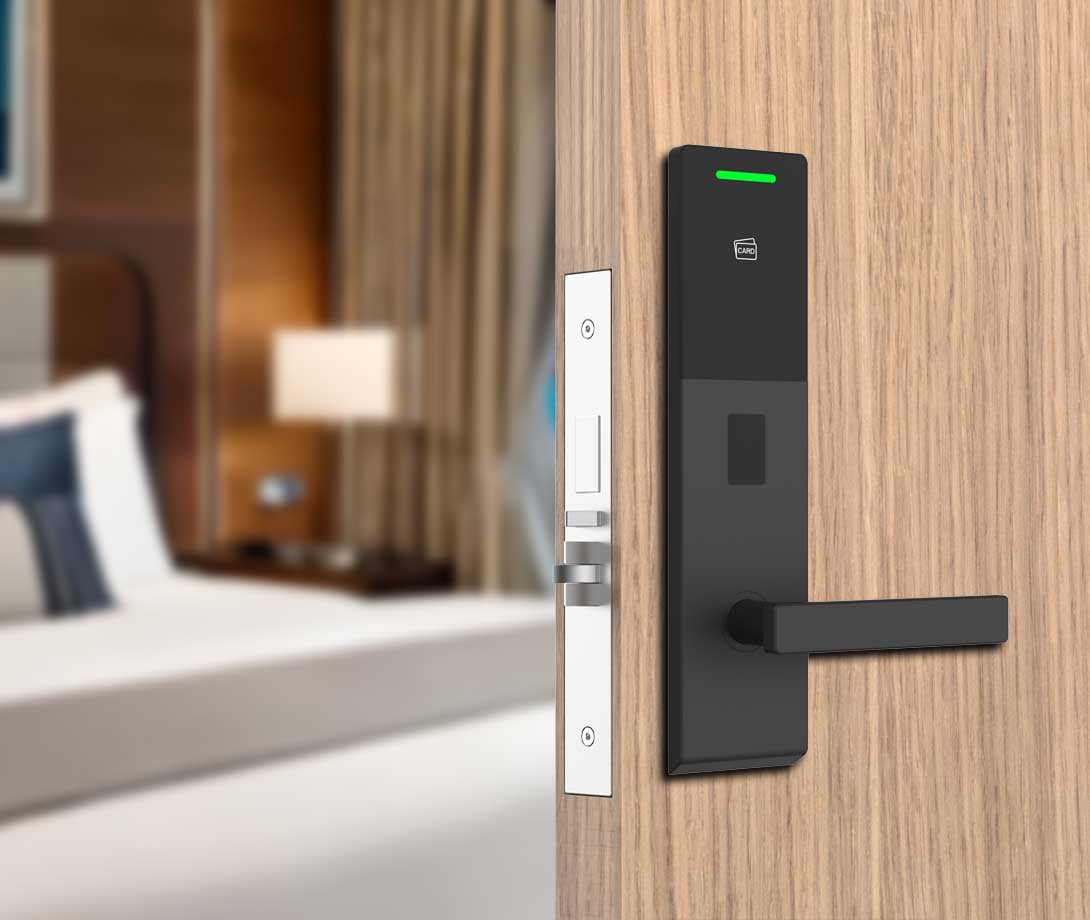Are hotel door locks powered by batteries?
Yes, most hotel electronic door locks rely primarily on batteries for power, but there are other auxiliary power supply methods.
Power Supply Methods for Hotel Electronic Door Locks
1.Primary Power Supply: Battery
Battery Types:
Typically, 4-8 AA alkaline batteries (or lithium batteries for some models) are used, with a typical lifespan ranging from 6 months to 2 years. This depends on the frequency of use and the complexity of features such as network connectivity or fingerprint recognition.
Advantages:
No wiring required, making installation flexible, especially suitable for hotel renovation projects.
Batteries are replaceable, offering low maintenance costs.
Low Battery Alerts:
The lock will notify the front desk or management staff to replace the battery in a timely manner using indicators such as a flashing light, a beeping sound, or network alerts.

2.Backup Power Solutions
(1) Emergency External Power Interface
Some high-end locks are equipped with USB-C/MicroUSB ports or 9V battery contact points. These allow for temporary power supply from a power bank or 9V square battery when the main battery is drained, briefly restoring electronic functionality to unlock the door.
(2) Mechanical Key
All compliant electronic door locks have a hidden mechanical keyhole (as per fire safety regulations). When the battery is completely drained, a physical key can be used to unlock the door. Hotels must properly manage spare keys.
3.Power Design for Special Scenarios
Networked Locks:
Some models that support WiFi or Bluetooth require higher power levels, often paired with an external power adapter (e.g., 12V DC) to assist in power supply. However, the main control still relies on the battery.
Solar Supplement:
A very small number of outdoor hotels or eco-friendly locations may use a hybrid power system, such as solar panels + batteries, although this is rare.
4.Security When the Battery is Depleted
Auto Locking After Power Loss:
Electronic locks will maintain their state after a power failure (e.g., if it was locked before the outage, it will remain locked) to prevent unauthorized entry.
Data Protection:
Unlock records, access permissions, and other data are stored in non-volatile memory, so they won’t be lost when power is restored.
5.Hotel Management Practices
Regular Inspections:
Hotels should monitor the battery levels of locks in each room through the management system and replace low batteries in advance.
Emergency Training:
Front desk and security personnel must be familiar with the location of mechanical keys and the procedures for using external power supplies.
Customer Communication:
Some hotels mark emergency contact numbers on room keys so guests can seek help if they encounter battery failures.
Summary
Hotel electronic door locks primarily use battery power, backed by energy-efficient designs and multiple backup options (external power and mechanical keys) to ensure reliability. The advantages include easy installation and the assurance that basic security will not be compromised during power outages. However, regular maintenance and emergency plans are required to manage battery replacements and ensure smooth operations.

